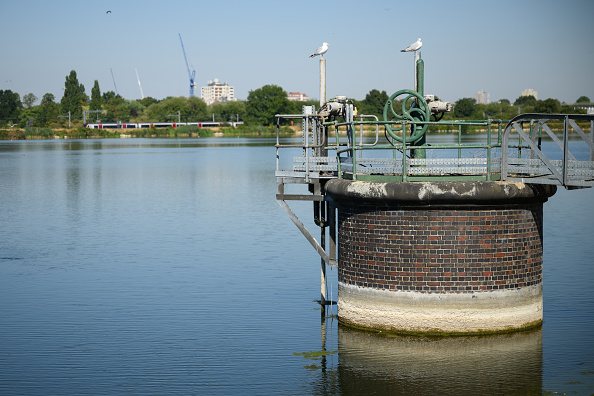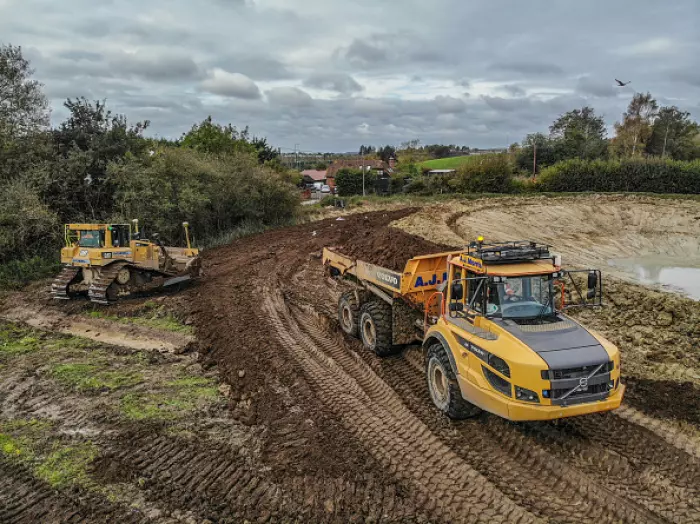Small things can create big problems when anyone tries to build anything in Britain.
A single wizened tree can scupper plans for 291 flats.
A colony of terns can stall the development of a nuclear power station.
If nature does not intervene, politicians sometimes do. Government ministers, who are supposed to focus on affairs of state, can rule on the fate of a car park on the outskirts of London.
Even if politicians hold off, the courts may step in. A large wind farm off the coast of Norfolk was postponed after a local resident persuaded a judge that the government had not properly assessed how it would affect his view.
Building in Britain is never easy, often difficult and sometimes impossible. The country has become a vetocracy, in which many people and agencies have the power to stymie any given development.
The Town and Country Planning Act, passed in 1947, in effect nationalised the right to build. Decisions about whether to approve new projects are made by politicians who rely on the votes of nimbys (“not in my back yard”), notes (“not over there, either”) and bananas (“build absolutely nothing anywhere near anything”).
Respect for the rule of law
Green belts, which were designed to stop suburban sprawl, have achieved precisely that. These enormous no-build zones enjoy Pyongyangesque levels of support among voters, who picture them as rural idylls rather than the mishmash of motorways, petrol stations, scrubland and golf courses that they are in reality.
Strict environmental laws protect many creatures, especially cute ones like bats. Judges strike down government decisions if they are based on a botched process because Britain respects the rule of law.
In isolation, each part of the planning system may seem unobjectionable. But the whole thing is a disaster.
Britain’s failure to build enough is most pronounced when it comes to housing. England has 434 homes per 1000 people, whereas France has 590.
Its most dynamic cities can barely expand outwards and are frequently prevented from shooting skywards as well.
 It's been more than 30 years since Britain last built a reservoir. (Image: Getty)
It's been more than 30 years since Britain last built a reservoir. (Image: Getty)
But the problems extend well beyond housing. Britain has not built a reservoir since 1991 or finished a new nuclear power station since 1995. HS2, a high-speed railway, is the first new line connecting large British cities since the 19th century.
Even modest projects, such as widening the A66 road across northern England, take over a decade. The result is frustration and slower economic growth.
A truly bold government could transform the planning system. A proper land-value tax would weaken the perverse incentives to keep city centres underdeveloped and encourage landlords to build or sell up.
Scrapping or shrinking the green belt is a no-brainer. A rules-based system, with local authorities declaring loose zones of development and letting developers build within them, would be preferable to a discretionary system that leaves each decision in the hands of capricious politicians.
Such drastic changes are out of the question for now.
A gummed-up system in which it is hard to build anything is the revealed preference of British voters.
Alongside the National Health Service, the planning system is one of the only policies of Clement Attlee’s post-war Labour government to survive the free-market turn that Britain took in the 1980s.
The best thing Boris Johnson’s government attempted was an ambitious reform of planning rules. It was shelved after a rebellion among Tory MPs; the cabinet minister who proposed it lost his job.
 Protests to save trees can stymie housing developments. (Image: Getty)
Protests to save trees can stymie housing developments. (Image: Getty)Mayors in Greater Manchester and the West Midlands have thrived through such co-operation.
The government should go further and hand regional authorities more fiscal powers, including full control over all property taxes.
Currently, who pays what is settled almost entirely in Whitehall rather than town halls.
British local authorities take a far smaller slice of revenues raised in their area than is usual in other European countries.
So, they have little incentive to allow development: they endure all the political pain for a piffling fiscal gain. Giving local authorities a larger slice of the pie would encourage them to bake a bigger one.
If an incentive to grow is not enough, the government should compel them at least to try.
All public authorities should be given a mandate to boost growth. Granted, that is a nebulous goal.
Yet similar rules exist in other areas. Since the Equality Act was passed in 2010, public authorities have been expected to do their bit for “equality”, an ill-defined concept.
Local authorities have had to think deeply about how to make a whole host of things more equal or end up in court.
A growth mandate would provide yimbys with legal ammunition to face down their nimby nemeses.
Opponents of development have an arsenal of legal weapons. A growth mandate would help redress the balance.
Expecting a county council to do its bit for GDP is no more absurd than expecting it to contribute to reaching net zero by 2050.
Boosting growth and stopping climate change require systemic solutions, well beyond a local politician’s usual remit of potholes, bins and dog poo. But every little helps.
 Objectors are able to stop even renewable-energy schemes. (Image: Getty)
Objectors are able to stop even renewable-energy schemes. (Image: Getty)Finally, projects crucial for Britain to hit its target of being emissions-neutral by 2050 should be exempt from bog-standard planning rules.
At the moment, legislation designed to protect the environment stands in the way of projects that will help reach the climate goal. Renewable-energy schemes can be blocked for environmental or aesthetic reasons.
Earlier this year, a council in Kent recommended refusing its own planning application for solar panels on the roof of its building because they would look “out of place”.
Britons mistake conservationism for environmentalism, confusing the protection of ancient woodland and great crested newts with the efforts needed to keep climate change at bay.
If Britain’s bonkers rules on building cannot be changed, they should at least be bypassed.
© 2022 The Economist Newspaper Limited. All rights reserved.
From Economist.com, published under licence. The original article can be found on www.economist.com.














